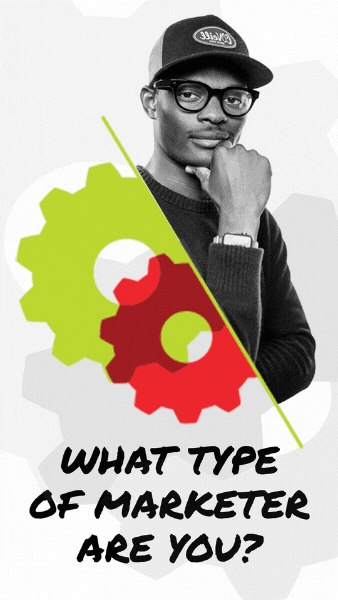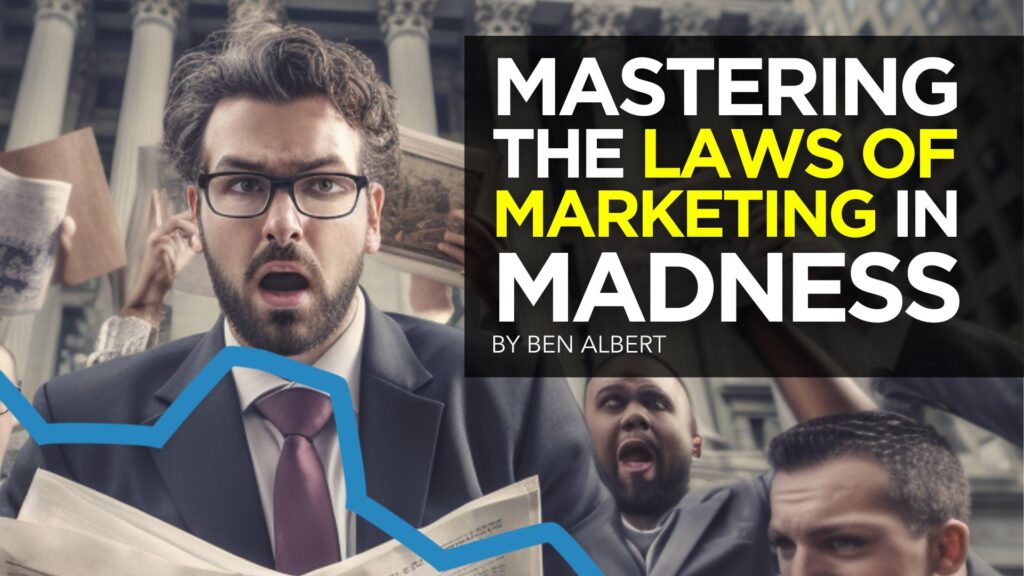

Ah Facebook Ads…
We all struggle to get a good conversion rate, sometimes (especially with some of the recent changes to what works on Facebook).
But then there are other times when you know that your product or service is up to snuff and your copy is on point, yet your ads are still coming up short.
Well guess what?
The best product in the world won’t get sold by ads with sub-par design.
But don’t worry. I’m here to show you how to design your ads so that nobody needs to know you aren’t a designer.
Ad creative is arguably the easiest factor to test when creating or troubleshooting ad campaigns. And frankly, you don’t have to be an expert to create eye-catching ads that stop the scroll.
I’m going to break down what makes a “good” image and show you 4 step-by-step ways to design your own Facebook ad images—and the best part is, you can do it all without having to spend a dime.
Let’s jump into the first, and most important, characteristic of your Facebook ad.
1. Simple, Clear Representation of the Marketing Message
When it comes to successful Facebook ads, 1 thing is apparent—the offer and the messaging is the most important part of your ad. Regardless of how well designed your ad image is, if your message isn’t clear, you won’t be getting any clicks.
We’re a pet-friendly group here at DigitalMarketer, so for the examples in this post, we are going to be looking at and creating online ads for a fictional brand, Pets of DM.


Notice anything wrong with this ad?
For example, using this image of a dog when the rest of the ad copy is about cats doesn’t really make much sense.
Facebook ads are comprised of several elements, with the image being only 1 of them. So you need to make sure that it fits in with the rest of your ad as well.


Keep your messaging consistent
This looks better, right?
You also want to make sure the message of the ad is consistent with the landing page you are directing traffic to. This is known as ad scent, and you want the messaging and the imagery on the ad to resemble that of the landing page as well.
2. Choose Complementary/Contrasting Colors That Stand Out
Most people aren’t going on Facebook to browse the digital ads that show up in their newsfeed, so you need to make sure your ad stands out and grabs their attention. One of the easiest ways to do this is by choosing colors that are less likely to blend in with the rest of the newsfeed posts.
Choosing colors is often made harder than it needs to be. For some businesses, like DigitalMarketer, we have branding guidelines that we stick to in order to keep the feel consistent across all of our content.
If you don’t have a set color palette to work with, using a site like Coolors.co to generate a palette for you is an easy way to make sure the colors work well together and look professional.


Example of a color palette from Coolors.co
3. Use Relevant, High-Quality Images
When you’re creating image ads, the last thing you want is for your ad to come off as cheesy or unprofessional by using low-quality clip art or stock photos. There are more and more resources made available every day, and finding high-quality photos and illustrations isn’t as difficult as it might seem.
The most important thing you need to look at when choosing images is the licenses that are associated with them. Pulling images from a Google image search is a big no-no, and you need to make sure that you are legally able to use the images you choose, or you can easily find yourself in hot water for copyright violations.
The rule of thumb here is that if you aren’t explicitly given permission to use an image, then avoid it all together. Look out for images that are free for commercial use, and require no attribution. Pexels.com is a great resource for stock photos, and the licenses are shown front and center, so there is no question as to whether or not you can use an image.


Example Pexels.com search for sunsets


Make sure it is free for commercial use with no attribution required
If you’re looking for illustrations, Iconfinder.com is a great resource. The same rules apply to illustrations as photos, and you need to make sure the license allows you to use the image in your ad.


Example Iconfinder.com search for laptop illustrations


Make sure the illustration is free for commercial use and does not require attribution
4. Go Easy on the Text
When designing your ads, you don’t need to put tons of text on your images. In fact, you should only use a small amount of text, such as highlighting your offer or including a call to action.
If your ad needs a lot of explanation, keep that in the ad copy and not on the image itself. Facebook will limit the reach of your ad if you have too much text.


Want to get certified in Content Marketing?
Leverage the tools and channels to predictably and profitably drive awareness, leads, sales, and referrals—EVERYTHING you need to know to become a true master of digital marketing. Click Here
This was previously known as the 20% rule, and Facebook would not approve ads in which 20% or more of the image contained text.
Now, ads that are heavier on text may approved, but the ad’s reach is determined, in part, based on the amount of text included in the image.
Facebook provides this guide to give you a better understanding of the amount of text you can include. But just to make sure, you should always check your image using Facebook’s overlay tool before submitting an image as part of an ad campaign.


Always test your ad images with Facebook’s overlay tool
Since you are limited to the text you can fit on your images, you should make sure that real estate doesn’t go to waste. Choose fonts that are easily legible and not distracting. You should use a maximum of 2 fonts, but if you can, choose just 1 and stick with it.


Avoid using distracting or hard-to-read fonts
This is an example of what can happen if you try and get too “cute” with your font choices. Compared to the example we showed earlier, which one looks more professional and is easier to read?
Just like images, you also need to make sure your fonts are licensed to use commercially as well. Google Fonts is a great resource, and all of the fonts in their library are licensed for commercial use without attribution.


Google Fonts has hundreds of free commercially-licensed fonts for you to choose from
Creating Your Ad Images
Now that you’ve narrowed down your marketing message, color palette, images, and fonts, it’s time for the fun part of actually creating your ads! We’re going to look at some examples of real paid ads that big companies are using, and then we will show you how easy it is to make them on your own.
(RELATED: Check out this 7-Step Facebook Ad Plan to learn how to get started on your own campaign)
To continue with keeping things free, I am going to show you how to make the images using 2 different free tools: Apple Keynote, and everyone’s favorite online editor, Canva.
Example 1: Hubspot


In this example, you can see that HubSpot is running 2 variations of the same ad with different background colors. We are going to recreate our own version of this ad to go along with our fictional brand, Pets of DM.
For this example, we are going to use Keynote.
How to Design Facebook Ad Images in Keynote
Example 2: The New York Times


The New York Times is using several different variations of the same template in this example. This ad concept is fairly simple, and it keeps the focus on the offer without distractions.
This type of simplicity could work well in a retargeting campaign where you are showing the offer to someone who is already familiar with your brand.
We are going to use Canva to make this example.
How to Design Facebook Ad Images in Canva
You should now be able to design Facebook ad images and look like a pro, even if you have no design experience at all.
As long as you follow these 4 guidelines, your ads will be bringing you in leads and conversions before you know it.














